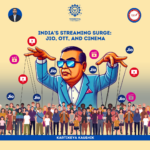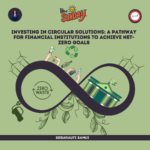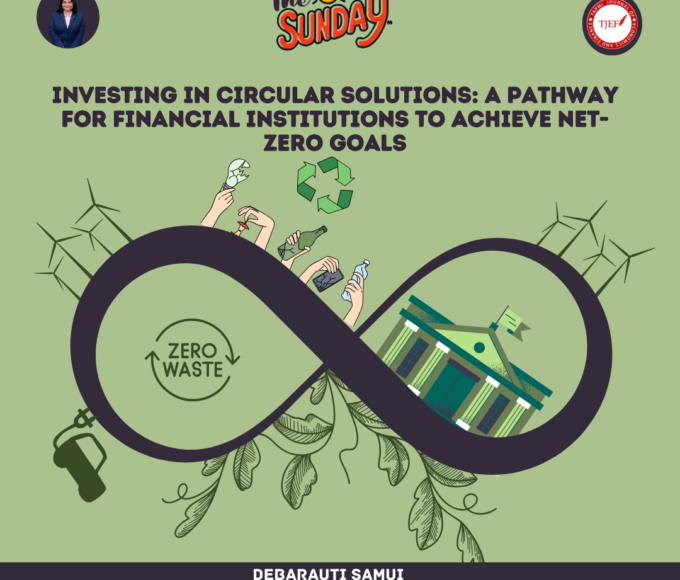
Sanctions are a common tool used by governments and international organizations to exert economic pressure on countries or individuals. They can take many forms, such as trade embargoes, financial restrictions, or travel bans. Sanctions can significantly impact the global economy by disrupting trade, investment, and financial flows. However, sanctions can also be effective in achieving their intended goals, such as changing the behavior of a government or regime. We have encountered many sanctions that have been issued in recent years because of the ongoing conflict in Europe. But who has benefitted from the war?
Let’s dive into the story of Venezuela – a nation with a population of more than 30 million people, known for winning global beauty pageants and its brutal economic condition over the past decade.
Venezuela’s Timeline
Venezuela was considered a relatively wealthy country prior to 1998, due to its oil resources. The country has the largest proven oil reserves in the world, and the oil sector accounted for a large portion of the government’s revenue and the country’s overall GDP. This wealth was used to fund social programs and infrastructure development, and Venezuela had a relatively high standard of living compared to other countries in Latin America.
So, what happened to the country with the world’s largest Oil reserves? Where did it go wrong?

By looking at the above graph, we can analyse the various events that took place, that brought this wealthy Latin country to the pits.
1998 – Under the leadership of President Hugo Chavez, Venezuela implemented a series of socialist-inspired policies aimed at reducing poverty and income inequality. This included the nationalization of key industries, such as oil and telecommunications, as well as land redistribution and the creation of communal councils to provide basic goods and services to poor communities.
In 2004, you notice the first slump in the trend line, owing to increasing pressure to address concerns about environmental impact and to invest in alternative energy sources. But this didn’t come as a surprise, the oil shocks were often cyclical in nature and the global economies anticipated the surge to adapt accordingly. Post 2005 oil prices rose, from which the Chavez-led government of the time sought to derive maximum revenues on the global market. Its dependency on the oil sector became more apparent, and Venezuela became a “petrostate” – a nation whose income is largely reliant on the export of Oil.
2006, Chavez took to Government again, re-inventing the economic structure towards its economic gold mine – Petroleum. This along with the increase per barrel paved a way for large inflows of foreign capital, which leads to an appreciation of the local currency making imports comparatively cheaper. This move proved to be a great move, but at what cost? Chavez was able to initiate this by rooting labour and capital away from other sectors of the economy, such as agriculture and manufacturing, to work on building pipelines and better filtration processes for crude oil. This also came at a cost as more resources and expertise were required to handle such a task.
2008- 2012, you may notice a particular dip in 2008 and a revival post that, which proved even during “The Great Recession”, Venezuela was able to bank on its foreign reserves and global demand to withstand the economic disruption. Chavez was known for his people-oriented reforms and demanded the nationalization of major sectors like banking, electricity, transportation, tourism etc for the betterment of employees. This caused extensive government spending, to which the government didn’t flinch owing to its oil prowess. Below is a graphical chart stating the import spending as a percentage of the GDP.
Venezuela’s imports for 2011 were $62.33B, 2012 – $92.40B (48.23% Increase), 2013 – $109.49B (18.51% Increase), 2014 – $151.45B (38.31% Increase). This substantial spending was only being offset by the export of crude oil which didn’t diversify but concentrated all its revenue towards a single sector, peaking at 95%.

The Downfall of Venezuela:
Many associate the downfall of the Venezuelan economy post the death of Chavez and the election of his successor and current president Nicholas Maduro. But what we need to understand is a country’s overall spending and prospects. In 2012, Maduro was handed over an economy that functioned solely on the government’s enormous spending. It imported electronics, medicine, agricultural products, cars, metals and essential food and beverages. The first mistake was to continue with the policies engraved by his predecessor which was based on socialism, focusing on public opinion, and continuing with the imports of necessities.
The Oil Shock:
The image below shows the oil prices from 2005-2022

The very defining moment that changed the economic outlook for Venezuela was the 2014 oil price collapse. This was due to the oversupply of global oil and reduced consumption by major importers. But another element to investigate is something known as shale oil, which used advanced drilling methods to extract Crude oil directly from the source, these advancements were in the works from the 2003 boom in oil prices. The US was able to develop this technology, taking the market to new heights and surpassing major producers like Saudi Arabia and Venezuela. This led to one of the highest drops in prices. But if you notice, a similar drop took place in 2008, when the economy was able to recover. The difference this time was the increasing fiscal deficit laid on the country. As the revenue went down, they were not able to pay their large import bills, which led to the carrying of debt through the years. As spending grew, the deficit widened, and foreign inflows took a slump due to the enormous spending and political instability in the country. As debt grew, necessities in the country garnered high prices causing inflation across the nation. The temporary solution and a dire error to this deficit, was to temporarily print more notes increasing the supply of the “Bolivar” (local currency) allowing for money flow within the economy. This was only short-term, and the concurring effects could so be seen in the forthcoming years.
Sanctions:
With the rising tension in the political stability of the country, protests spurred out of control. The government was being accused of extrajudicial killings, human rights violations and political repression. In the Elections of 2017, Maduro faced opposition from local as well as foreign counterparts (US), however, Maduro had the upper hand, as he appointed loyalists in major positions sealing his victory in future elections and that’s exactly how he was able to take office in 2018 for another term of presidency. But little did he know what the US had planned for him. Firstly, they requested him to retire from his position in government to which he didn’t comply and blamed US sanctions for the economic crisis. He was able to secure the presidency in 2018, to which the US, European Union and neighbouring states ceased to consider his presidency as they believed it was a faulty election.

The Trump administration took immediate measures to impose sanctions on the world’s largest oil reserve and PDVSA (Petróleos de Venezuela, S.A.) is the Venezuelan state-owned oil and natural gas company) which held up the exports to major global customers.
Inflation:
Due to these sanctions, the revenue stream was made minimal, the In-house output was never considered to be relevant as most of the country was dependent on imports. This caused a fall in the value of the bolivar, causing the highest inflation to this day.

To put things into perspective in 2018 – 1 US dollar = 248566.537 bolivares, so to consume one breakfast in Venezuela you need to be a millionaire. The irony of it all was the ATM withdrawal limit set was 10,000 Bolivars. Which almost made it impossible for citizens to even access local currency. And even if they could, they would need denominations to value millions which aren’t pocket or wallet friendly rendering the currency to almost no value. This moved the economy to the black market for currency. De-facto dollarization took place, which meant the use of a foreign currency for daily transactions instead of the local currency. In Venezuela’s case, the printing of notes became more expensive that the actual value of the note. The economy was shattered and almost 70% of the population faced extreme poverty. This led to Hyperinflation, where prices increase out of control under shorter periods. It’s a difficult situation for Venezuela having no in-house production, ever-increasing debt, tough sanctions, theft, corruption, and no means for policy change.
Things took a turn for the worse, with the Covid-19 Pandemic causing even more damage like shortage of medical supplies, inadequate resources, and delay in containment and detection of cases.
There aren’t too many economists or economic books or policies that can form a structure to revive the Venezuelan economy. Unless the political standpoint of the country opens to global regulations and aid. But that would mean Maduro to give up control and open the country’s borders through social reforms and infrastructure to entice foreign investors.
Venezuela’s, prospering neighbours:

With the situation turning downside since 2015, almost 7+ million people looked to migrate to neighbouring countries, which proved to be difficult as nations hosting migrants would need to develop infrastructure, healthcare, education and jobs. For example, Columbia which received the highest number of migrants (2 million) recorded costs of 550 dollars+ per migrant, which amounted to about 0.5% of the country’s GDP. Although in the long term, it can prove to be beneficial in the overall output of their respective economies.

Venezuela’s ray of hope:
Now as mentioned in the title of this article, the word war refers to the ongoing conflict between Russia and Ukraine. A lot of countries have suffered due to the sanctions being imposed on Russia which is a major player in the oil Space. These countries also include major giants like the US which has been a dominant force in sanctions imposed on Venezuela. Since Russia has been imposed with sanctions, the current Biden administration has looked to Venezuela as its source of oil. They have done this by lifting sanctions allowing Chevron Corporation, an American energy corporation to drill and pump oil in Venezuela. This puts Venezuela in a vulnerable position, where they have no other choice than to abide by the agreement that can bring some source of revenue into the country. By signing this deal, they were able to capture some growth in the economy. Through this they were able to peg their currency against the oil Commodity resource, so where 1 USD = 248,480.0646 in 2018, was now 2722.7569 VEF in 2021-22 and 19.9595 VES in 2023. Notice the change in currency codes from VEB, VEF and VES which was the gradual change each time the currency pegged a smaller denomination. The increase in GDP can be observed in the below graph.

Concluding statement:
Well, one wouldn’t say war should be the solution to solve the economic problems of other countries. But one major player that stands out is a nation’s power over another. In this case, it was the US who imposed sanctions in the first place based on corruption and political grounds almost ruining the only source of revenue for Venezuela, indirectly affecting an already diminishing economy. But who is to blame? Is it political instability or the poor decision to induce money supply to temporarily sustain the economy? War in this case was coincidental and global players have taken large steps in dealing with this war. Whether it is the US imposing sanctions on one hand and tightening sanctions on the other hand, who is to gain other than the country imposing sanctions? Observe the global powerplay in how Venezuela was basically a pawn on the global chessboard. Yes, the US didn’t anticipate the war and sanctions on oil, but does gain give enough valid reason to lift a sanction? If so why was it put in the first place? It’s the strategic moves that take place across the globe that make countries dependent on each other.
Lessons can also be learned on how economies must cooperate with each other, diversify portfolios to not rely on only one source, keeping a well-balanced BOP (balance of payments). In the case of India, although running in a deficit, have been able to maintain trade as well as focus on “Make in India” to improve the in-house capability of the nation. Venezuela on the other hand should consider this as mere luck, they should now focus on improving growth within the economy, bringing in investors and stabilizing reforms for trade to take place. The market for oil might change soon as the world moves to an Electric and clean energy interface. Venezuela must look to utilize current revenue to clear debt, open borders and invest in technology to have a chance of future survival.
References:
- Marco Arena, E. F. C. Venezuela’s migrants bring economic opportunity to Latin America https://www.imf.org/en/News/Articles/2022/12/06/cf-venezuelas-migrants-bring-economic-opportunity-to-latin-america#:~:text=More%20than%207%20million%20Venezuelans,to%20meet%20their%20basic%20needs. (accessed Jan 21, 2023).
- Venezuela: Background and U.S. relations – federation of American … https://sgp.fas.org/crs/row/R44841.pdf (accessed Jan 21, 2023).
- Venezuela: The rise and fall of a petrostate https://www.cfr.org/backgrounder/venezuela-crisis (accessed Jan 21, 2023).
- What triggered the oil price plunge of 2014-2016 and why it failed to deliver an economic impetus in eight charts https://blogs.worldbank.org/developmenttalk/what-triggered-oil-price-plunge-2014-2016-and-why-it-failed-deliver-economic-impetus-eight-charts (accessed Jan 21, 2023).
-Editor TJEF
Aaron Cardozo

















Leave a comment